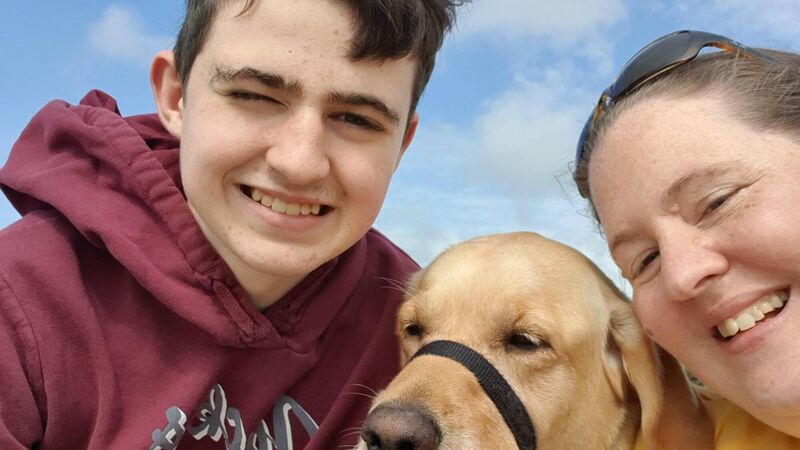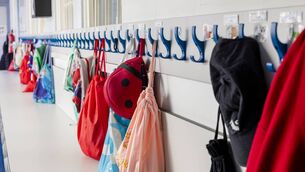'He’s my son, I love him, but he has hurt me': Cork mum on caring full time for Liam, 15

Liam, Skye, and Julie Anne Cunneen.
Julie Ann Cunneen is woken at 5.30am many mornings by her 6ft-plus son jumping on her in her narrow hospital bed. The force often sends her crashing to the floor.
Ms Cunneen is deaf so she can’t hear him approach and the first warning is the physical collision or flailing arms hitting her in the face.
















